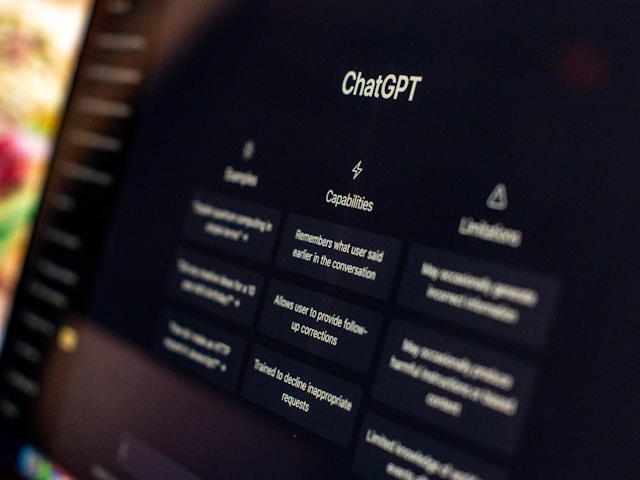Q&A: Is Digital PR Still Valuable in the Age of AI Search? With AI platforms like ChatGPT, Perplexity, and Google SGE changing how people find information, we’ve been getting more client questions like:

Q: Are digital PR campaigns still valuable now that AI is replacing traditional search engines?
A: Absolutely — but the value is shifting. In the past, digital PR was primarily about earning backlinks to boost SEO rankings. But today, with the rise of AI-driven search, visibility is no longer just about where you rank on Google — it’s about whether you’re referenced at all.
Large Language Models (LLMs) like ChatGPT don’t rely on backlinks or SEO tricks. They pull answers from trusted sources they’ve crawled — and what they’re looking for are brand mentions, original data, and expert quotes in credible media outlets. In other words: exactly what digital PR campaigns generate when done right.
Q: But what if the campaign isn’t directly related to our product?
A: That’s the beauty of smart digital PR. You don’t need to be literal — you need to be relevant. Take our recent campaign for Mixbook as an example. They create custom photo books, including recipe photo books, but instead of running a promotional campaign like “Top 10 Recipe Photo Books” (which most journalists would ignore), we ran a broader lifestyle piece: a national survey on America’s favorite summer dishes.
The results were covered widely — from Fox to Yahoo News — and Mixbook was cited as the source of the survey. Even though the article was about summer food, not photobooks, it helped associate Mixbook with family traditions, seasonal storytelling, and lifestyle moments — all of which are topically adjacent to their product. In the AI world, that kind of brand relevance carries real weight.
Q: So what parts of the article are actually being used by LLMs like ChatGPT?
A: Great question — and the answer is: not the backlinks.
LLMs don’t reward SEO tactics. Instead, they extract factual content, structured data, and narrative context. For example, in a piece by WBOY-TV (West Virginia) about the campaign, here’s what AI would actually absorb:
Mixbook was cited as the source of the survey (brand authority)
The sample size was listed (3,000 people) (structured data)
A quote explained why the featured food (pepperoni rolls) matters to the region (narrative context)
The article was published by a credible local news outlet (source trust)
These elements help LLMs build a semantic picture of Mixbook as a knowledgeable, trustworthy brand with ties to food, memory-making, and seasonal culture — even if the product itself wasn’t front and center.
Q: But if someone searches for “best recipe photo books,” won’t a food campaign be irrelevant?
A: In traditional SEO — yes, it probably wouldn’t help you rank directly.
But in the AI search era, LLMs aren’t just pulling pages that match keywords. They’re synthesizing answers based on how well-known, credible, and topically connected your brand is across a wide range of content.
If Mixbook shows up repeatedly in media stories about:
- Family food traditions
- Creative gifting
- Personal storytelling
- Seasonal memories
…then when someone asks ChatGPT “What’s a good platform to make a recipe book as a gift?”, there’s a much higher chance Mixbook will be mentioned, not because of keyword matching, but because of contextual credibility.
Q: So what’s the goal of digital PR now, if it’s not backlinks?
A: The goal is LLM discoverability — getting your brand referenced in the sources AI trusts.
To do that, we design PR campaigns that:
Contain original data, quotes, or rankings that AI models retain
Earn coverage from credible media outlets that are frequently crawled
Tie your brand to relevant themes — even if not directly promotional
Backlinks might still help your website traffic. But mentions, citations, and structured knowledge are what help you show up in generative search answers — and that’s where discovery is going.
Q: How can we make sure our PR campaigns feed into AI results more effectively?
A: A few small changes can make a big difference:
Use original data in every campaign (surveys, rankings, reports)
Embed expert commentary that ties lightly back to your product
Avoid overt promotion, but include subtle relevance (e.g. “We’ve seen more recipe books being created this summer,” said Mixbook’s brand director…)
Create follow-up blog posts that connect campaign theme to product in a more direct, ownable way — perfect for LLMs to crawl
Final Thought:
In the AI era, digital PR isn’t about gaming Google — it’s about being the kind of brand people (and AI) want to talk about.
That means telling better stories, earning smarter mentions, and embedding your brand into conversations that matter. If you’re ready to make that shift, we’re here to help.